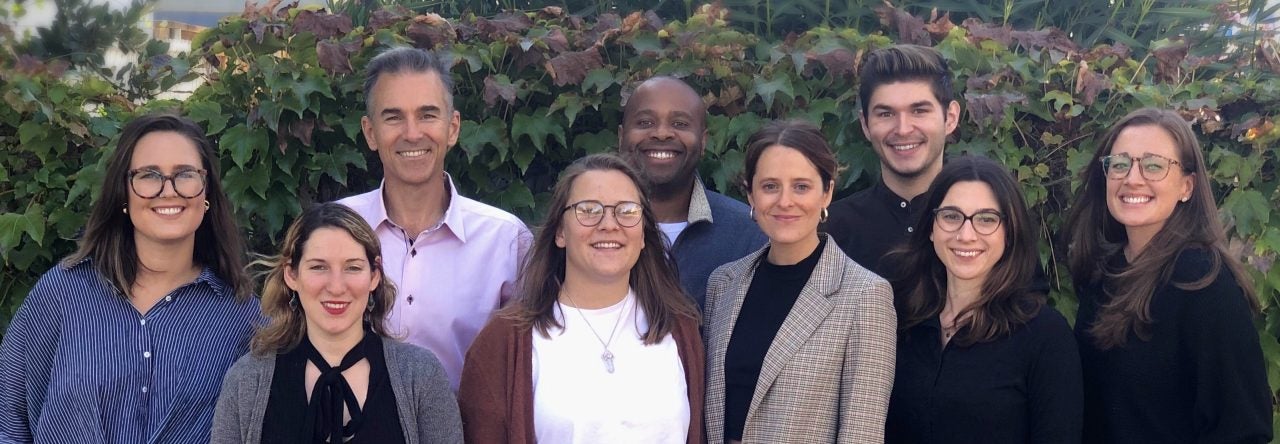Decision Making Study
In our current study, we are examining the types of decisions that adolescents make when they are considering the effects on other individuals, rather than considering the effects of a decision on themselves.
This is a single-visit project, which means we are looking at the types of decisions made by adolescents under one set of conditions in the lab. For this project we are recruiting teenagers aged 13-16. This study involves each adolescent and his or her parent making one visit to our laboratory at UC Davis’s Center for Mind and Brain. Both the adolescent and parent will be asked to complete a few questionnaires, then the adolescent will play two computer games that involve decision making tasks.
As a way to thank families for their time, participants will be compensated with cash valuing at $40: $35 for the teenager’s participation and $5 for the parent’s.
This research project is being done in order to learn more about the types of decisions that adolescents make and why. It is not meant to change behavior or help with problems. We are not qualified to offer you those kinds of services, and are not trained to give advice on what parents should or shouldn’t do with their children. Hopefully, what we learn in this research project will be useful, so that new ways of helping children can be developed.
Collaboration with Centro de Apego y Regulación Emocional (CARE) of the Universidad del Desarrollo, Chile:
1. Network for the study of emotion regulation within the family context (P.I. Carola Pérez, Ph.D.): International Collaborator
Our general objective is to strengthen and further develop research on the emotional regulation processes that take place within the family context by establishing an international network that includes centers and research groups in the USA, Australia, and Chile. The research projects are oriented to inform, develop, and implement prevention and intervention strategies to improve individual, dyadic, and family emotional regulation, to promote the emotional well-being and mental health of families.
2. Bidirectional relation between self-regulation and dyadic synchrony in mother/father- child: a physiological and behavioral perspective (P.I. Daniela Aldoney, Ph.D.): Consultant
This longitudinal study seeks to analyze the bidirectional relationship between patterns of dyadic synchrony (behavioral and physiological) and self-regulation (physiological and behavioral) of children between 3 and 4 years in Santiago, Chile. In addition, it seeks to examine whether there are differences in the relationship between dyadic synchrony and children’s self-regulation between fathers and mothers
3. Dyadic coregulation and children’s self-regulation (Fernanda Prieto, Doctoral Study): Thesis advisor
Based on dynamic systems, this project seeks to explore the dynamic and bidirectional relationship of dyadic co-regulation (father / mother-child) and the development of childhood self-regulation, considering the interrelation of the multiple associated systems (i.e. physiological, emotional, behavioral).
Collaboration with Pediatric Psychology Center, LLC and The Child and Adolescent Relationships Laboratory at the University at Buffalo, New York
The Biopsychosocial Health Intervention and Prevention program (BHIP) was developed by Dr. Kim Burgess, Ph.D. in collaboration with Professors Paul Hastings, Ph.D. and Julie Bowker, Ph.D. Together, they have created the BHIP program to help incoming preschool, kindergarten, middle school, and high school students reduce stressors and learn lifelong skills to help children and adolescents navigate stressful school transitions.
Neurobiology, Allostatic Load, and Development of Depression in Mexican-origin Youth Study
This study is designed to examine the development of depressed mood and depressive disorder among Mexican-origin adolescents 16 to 19 years of age. These youth are participants in the California Families Project at UC Davis, a 10-year, prospective, longitudinal study of risk and resilience to substance use of over 650 Mexican-origin families. Our study incorporates fMRI brain imaging and psychophysiological (e.g., heart rate, skin conductance) measurements. By taking a multi-faceted look at the neurobiological systems in relation to psychosocial measurements in adolescence, this project aims to assess the neurobiological processes that underlie reactivity to emotional, social and reward cues. In addition to characterizing these neurobiological processes, this project aims to examine how gender, sociocultural, and environmental adversity contribute to the development of depression problems. Our goal is to examine interactions between multiple biological systems and social contextual factors that lead to the development of depression problems in Mexican-origin youth. Funding for this project is provided by the National Institute of Mental Health
Positive Emotions & Behaviors Study
In this study, we looked at the development of behaviors, like caring, sharing and helping in preschool-aged children. We will be looking at what parents do that might support these kinds of behaviors, and also how parent’s and children’s physiological functioning contributes to their behaviors.
This is a longitudinal project, which means we are looking at how children develop over a six month period and then again over a 2 year period. For this project, we recruited children who were 3 ½ years old (42 – 45 months) to begin the study, and we saw them again when they turned 4 years old. The children then returned for a third time around the age of 6, when they had entered first grade. The study involves each child and his or her mother making three visits to our laboratory at UC Davis, with the first two visits spaced 6 months apart, and the second and third visits spaced 2 years apart. We also asked preschool teachers, daycare supervisors, first grade teachers, or another adult who knew the child well to complete questionnaires describing children’s behaviors at daycare, preschool, and school.
This research project is being done in order to learn more about children’s social and emotional development. It is not meant to change behavior or help with problems. We are not qualified to offer you those kinds of services, and are not trained to give advice on what parents should or shouldn’t do with their children. Hopefully, what we learn in this research project will be useful, so that new ways of helping children can be developed.
